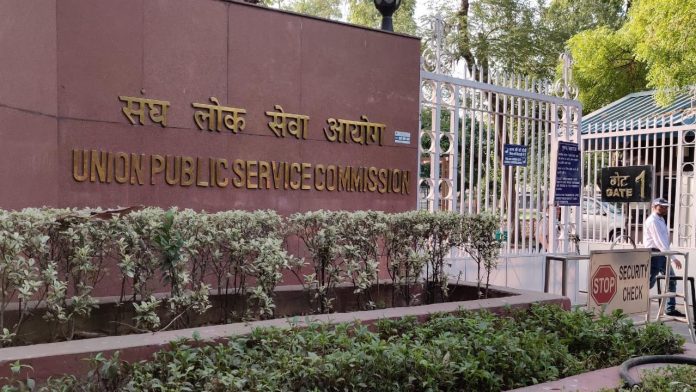Table of Contents
Toggle100 Days Strategy to Clear UPSC Prelims
The Union Public Service Commission (UPSC) recently deferred the IAS Prelims until October. The Prelims examination that was earlier scheduled to take place on 27th June 2021 will now take place on 10th October. Candidates have enough time to read and revise all topics mentioned in the syllabus.
The first thing to note down is the information about the IAS Examination. The commission annually released its notification with attached UPSC syllabus, eligibility criteria and exam pattern.
It is of utmost importance for each candidate to learn the syllabus by heart to avoid any confusion in the later part of their preparation. Once candidates are familiar with the syllabus, they can easily devise an efficient strategy to clear the exam.
Divide your syllabus into easy, moderate and difficult sections
One of the first few tips that can help aid candidates’ preparation is the categorization of topics mentioned in the IAS syllabus into the following three sections:
- Easy
- These are mostly static topics.
- Availability of study materials for such topics is not a question.
- These topics can be covered by referring to only one source of information.
- Moderate
- These topics can fall into the static and dynamic sets of the syllabus.
- Along with the existing study materials, slight research is needed on the candidates’ part to cover these up.
- More than one source of information is utilized in preparing these topics.
- Difficult
- These are dynamic topics.
- Current affairs have a major role to play in the preparation of such topics.
- Multiple sources of information are needed to cover these topics.
Candidates should note the following tips before they categorize the syllabus into the above-mentioned sections:
- To each candidate, definition of easy, moderate and difficult would be different.
- There will be candidates having expertise in subjects like Political Science, Economics, Geography respectively. These are those subjects which are generally taken as difficult by the majority of the candidates. However, it will be easier for those candidates who have graduated with these subjects or have acquired additional knowledge of these subjects.
- Candidates are suggested to finish easy and moderate topics first therefore they should separate these topics smartly and honestly.
- A good hold in easy and moderate topics can help candidates clear cut off of IAS prelims easily.
Important Topics from UPSC Syllabus
There are a few topics that a candidate should know of irrespective of its difficulty. As a candidate by now must know that the following subjects are asked in UPSC Prelims examination:
- History – Ancient India, Medieval India and Modern India
- Art and Culture of India
- Geography
- Indian Polity
- Indian Economy
- Environment
- General Science
- Science and Technology
- Current Affairs
All the above-mentioned subjects are important for the civil services examination but there are a few topics under these subjects which should be covered on priority basis. Such topics are listed below:
| Subject | Important Topics |
| Ancient Indian History | Indus Valley CivilizationVedic AgeSangam AgeMauryan EmpireGupta DynastyVardhana DynastyBuddhismJainism |
| Medieval History | Bhakti MovementTripartite ConflictPallavas DynastyRashtrakutas DynastySouth Indian Kingdoms like Cholas, Cheras, PandyasDelhi SultanateImportant battles like Battle of PanipatMughal Empire with a focus on Akbar, AurangzebMaratha EmpireBeginning of foregin invasions |
| Modern Indian History | Carnatic WarsAnglo Maratha WarsAnglo-Sikh WarsDoctrine of LapsePre-1857 eraPost-1857 eraLand revenue policies like Ryotwari System, Mahalwari System etc.Socio-religious reformsTribal and Peasant uprisingsIndian Nationalism with a focus on moderates, extremists and their policiesRevolutionary NationalismImportant Freedom Struggle MovementsPolicies and activities of Governors-General and Viceroys of IndiaConstitution of India |
| Art and Culture of India | Architecture of Harappan PeriodTemples of India under different time periodsTemple architecture like Dravida, Nagara and VesaraIndo-Islamic ArchitecturePaintings with special focus on Regional and Modern paintingsPerforming arts with special focus on Indian music, dances, puppetryReligions with special focus on Buddhism, Jainism, SufismCurrent affairs related to art and culture |
| Geography | GeomorphologyHuman GeographyWorld Regional Geography *Candidates should cover every topics given in the syllabus using NCERTs |
| Indian Polity | Constitution of IndiaPolitical System in IndiaPreamble to the ConstitutionConstitutional AmendmentsSchedules of Indian ConstitutionFundamental Rights of IndiaDirective Principles of State PolicyPresident, Prime Minister under Union ExecutiveGovernor, Chief Minister under State ExecutiveDevices of Parliamentary ProceedingsIndian ParliamentImportant Committees and CommissionsIndian Judicial SystemImportant Articles of Indian ConstitutionDecentralizationPESA |
| Indian Economy | Candidates should refer to NCERTs Class 11th and 12th to form the basics of economics topics. Current Affairs should be religiously followed. |
| Environment | EcosystemEcologyNutrient CyclingBiodiversityPollutionClimate ChangeConventions and ProtocolsEnvironmental Governance |
| General Science and Science and Technology | SecuritySpaceInformation and TechnologyInformation, Communication and TechnologyBiotechnologyRecent Developments in Science and Technology |
Motivational Factors to Pursue UPSC Exam
There are a few characteristics of All India Services that differentiate it from others. The satisfaction that one gets to serve the country tops the chart when it comes to motivational factors. Another one is the IAS Salary which makes the service a lucrative option as well. However, the focus should be on the perks and benefits when it comes to serving the nation. The ultimate aim of each candidate should be to take the country ahead in all spheres. IAS Exam is the stepping stone to many more opportunities that lie ahead. Therefore, a candidate must give it all to clear this examination.
The examination is surely a tough one but with the right strategy, it is not impossible to crack it within the stipulated time.











